Labour's big debate on immigration
- Published
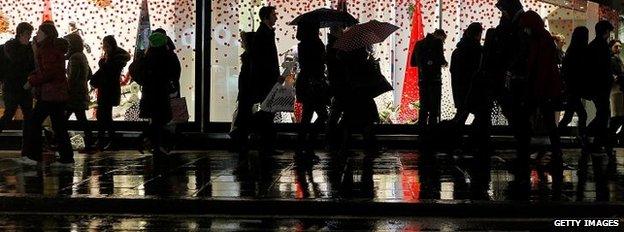
If there's one issue Labour leader Ed Miliband likes to use to show how the party's changed, it's immigration. But how different is its current policy - and how united is the party?

Defining the problem - Bigotgate
Brown: "I apologise if I've said anything that has been hurtful"
The most memorable moment of the last election campaign came when Gordon Brown was caught on tape calling long-time Labour voter Gillian Duffy a "bigot" as he was driven away from a walkabout in which he spoke to her about a range of subjects, external. During the conversation which covered pensions, tax, tuition fees and crime, she had asked, in passing, where all the east Europeans were coming from. Mr Brown's answer was that just as many British people were moving to the EU as moving from the EU. His private comments afterwards suggested that he thought to even raise the subject made someone a "bigot". He apologised but the damage was done.

Have things changed under Ed Miliband?
Ed Miliband: "We became too disconnected from the concerns of working people"
The easiest way to sum it is up is from this speech a couple of years ago where he said "to put it simply I think we became too disconnected from the concerns of working people". He sought to define himself against the low point of the Brown years, saying that worrying about immigration did not make people bigots. It was a theme he returned to recently, telling party members that over the past couple of decades there had been "big changes happening in our country and fewer and fewer working people thought anyone in politics was getting those changes". Immigration would be "properly managed" under Labour and he said his changed immigration policy would tackle undercutting of wages, ensure people in public services spoke English and make sure immigrants had to wait longer to claim benefits.

Why is there a debate now?
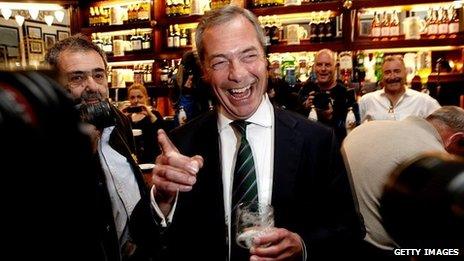
There is some polling evidence, and plenty of anecdotal evidence, that some Labour support has drifted to the UK Independence Party or joined the ranks of non-voters. The party's policy reviews are headed by Jon Cruddas, who suggests that the last Labour government failed to appreciate the impact of the wave of east European immigrants on driving down wages at the bottom end of the labour market. Ed Miliband seems to agree, focusing more on the economic impact of immigration on people at the lower end of the income scale, than on the broader cultural impact or, as UKIP leader Nigel Farage put it, feeling uncomfortable about hearing too many foreign voices on a train.

Not going far enough, says Frank Field
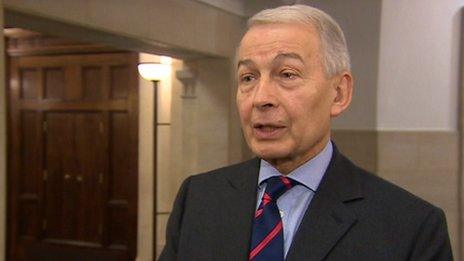
Frank Field, who chairs the cross-party balanced migration group, was one of seven Labour MPs to jointly pen a letter urging Mr Miliband to restrict the free movement of labour from European countries with "much lower incomes". This would "remove some of the pressure on wages, welfare, housing and public services in this country". The letter, co-signed by Ronnie Campbell, Ian Davidson, Roger Godsiff, Kate Hoey, John Mann and Graham Stringer, said: "We are deeply concerned that this EU open-door immigration policy is having an adverse impact on the very communities that the Labour party was founded to represent." If their proposal was taken up it would "prove to voters that we are intent on regaining control of our own borders".

It's all about jobs, housing and training - Jon Cruddas
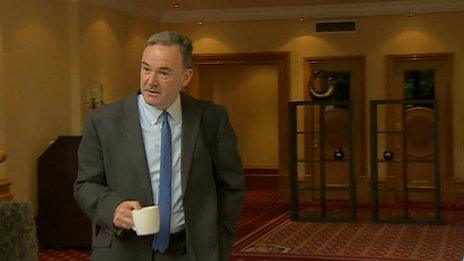
The man heading Labour's policy reviews was heavily influenced by his successful fight against the BNP in his Dagenham and Rainham constituency. He became convinced Labour should stop treating its traditional working class core voters as closet racists for being concerned about immigration but, at the same time, tackle the problems with jobs, housing and pay that were at the heart of their concerns. In an article for the New Statesman , externalin 2010 he said earlier policy had been "disastrous... another issue to triangulate - attack the BNP while co-opting their language... pay lip service to the 'white working class', then thrust them to the margins in pursuit of votes from the citizens of a middle-English Shangri-La".

Stay out of the 'gutter', says Diane Abbott
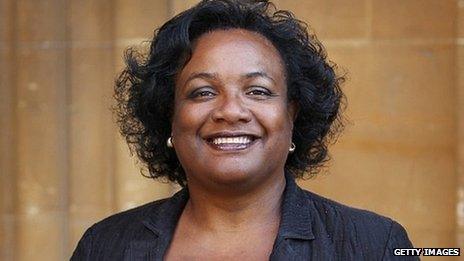
Former shadow health minister Diane Abbott says that Ed Miliband is well meaning, but has faced the "steady drumbeat" of pressure from his advisers and shadow cabinet to move right on immigration "in response to the supposed electoral threat from UKIP". Writing in the Guardian, external in May she said people did not join Labour to "see their leader sounding like a milk-and-water version of Nigel Farage" or "getting down in the gutter with Nigel Farage". While Mr Miliband talked about the pressures immigration put on people, she noted that there would not be an NHS without immigrants working in it. She also rejected the idea that the immigration debate was not about race, and concluded that, on a practical level, Labour could not win the next election by fighting on Tory ground.

Tony Blair says UKIP must be confronted
Tony Blair: Concern for order is justifiable
Making a rare foray into domestic policy issues last month, Tony Blair said voters had justified concerns about immigration and most reasonable people wanted to see some rules and order, although there were those who just wanted to keep out people who were different. He had wanted to bring in ID cards to tackle the desire for rules and order, he said in a speech. And he warned that it was "dangerous and wrong" for political leaders to think they were going to address the concerns of people worried about their jobs and their future by playing "into the idea that what's holding them back is that someone else is coming in and taking their opportunity... it is not true". That sounds at odds with the current Labour leadership's focus. He said people needed to take on "closed-minded, anti-immigrant, anti-EU, 'stop the world I want to get off'," attitudes. The UK's future lay in being outward-looking and open-minded", he added.

Exit checks needed, says Yvette Cooper
In May, Yvette Cooper called for a 'sensible' immigration debate
Shadow home secretary Yvette Cooper says she thinks there needs to be "an honest conversation" rather than a "shrill debate" on immigration. In a speech in April, she said the last Labour government got things wrong. "The pace and scale of immigration - and particularly low skilled immigration - was too great and it is right to bring it down. And we should have recognised more quickly the impact on low skilled jobs, and the worries people had." Plans include a doubling of fines for breaking the minimum wage or agencies which recruit just one nationality. There would also be "exit checks so that visas can be enforced and action can be swiftly taken to make sure people leave when their time runs out. We will draw up a plan to bring in proper controls to count people in and out, and deal with the hundreds of thousands of people overstaying their visas in Britain". She said that issue was not whether people were "for or against immigration, but how it should be managed and controlled". She said Labour had changed on immigration - "we've listened and learned".

So, all sorted for the election?
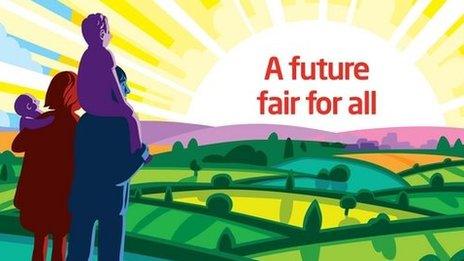
Labour's leadership appear united in their determination to no longer be seen as a party who think being worried about, or talking about, immigration is racist. But then, don't forget that the last Labour government talked tough on controlling immigration, with the e-borders system to count people in and out and tackling the number of asylum seekers. There was also Gordon Brown's "British jobs for British workers" speech. That was a slogan about improving training for British workers, rather than a pledge to restrict foreigners from taking jobs in Britain. Talk can probably only get you so far - a Lord Ashcroft poll in June suggested the Conservatives have an 8% lead on the issue among voters. Maybe Ed Miliband will be hoping that he was right when he predicted recently that the "biggest issues" at next year's election will be things like schools, the cost of living, the NHS and the link between hard work and family finances.